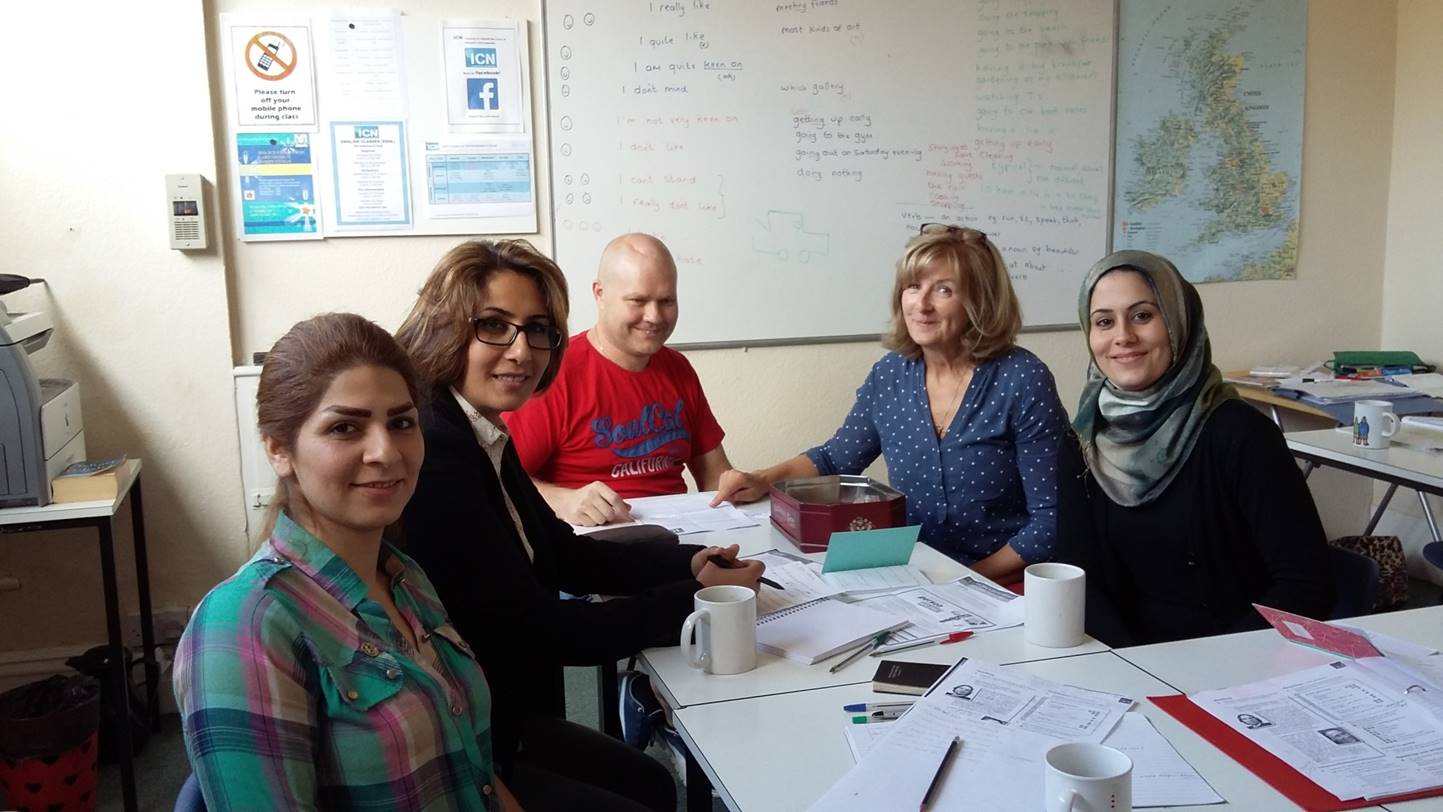 If you were tempted to say 9.30 in the morning until 12pm, you’d be so wrong! Any teacher knows that a lesson begins long before any learners arrive; it begins with planning and preparation. How do we plan? What do we prepare? Why not just turn to a page in a course book and use that? More good questions.
If you were tempted to say 9.30 in the morning until 12pm, you’d be so wrong! Any teacher knows that a lesson begins long before any learners arrive; it begins with planning and preparation. How do we plan? What do we prepare? Why not just turn to a page in a course book and use that? More good questions.
At ICN, our teachers know that their lessons need to be relevant and useful if we are to achieve our aim of helping learners to find jobs, access higher education and manage their daily lives here in the UK. We need to give our learners a solid foundation of the English language that can be built on and used to enable them to access all aspects of life here. To this end, teachers look for and create resources that are interesting and engaging. Our learners come with different learning styles – some enjoy hands on activities and games, others learn by reading, others by listening, so resources must reflect these needs.
Spikey profiles also need to be considered- “Spikey who?” I hear you ask. “What’s he got to do with it?” Well, it’s not a person and it has everything to do with making a successful lesson! Learners have different educational experiences, from no formal schooling at all to university degrees, and different levels in the four skills: speaking, listening, reading and writing. I have met learners who are able to hold coherent conversations but can’t read, others who can read but don’t understand what they’ve read, others who can understand what is said but can’t reply or join in a conversation. They have spikey profiles, strong in one skill and lacking in another. Our teachers are very skilled in adapting their lessons to meet the needs and abilities of each member of their class – and that requires planning and preparation.
OK, so the lesson begins with planning, but surely it ends at 12pm? Wrong again! Now begins the reflective process. Our teachers look back on the lesson to see what went well and what didn’t. They ask themselves some searching questions: did everyone take away something useful from that lesson? Who was struggling and with what? How can they be supported in the next lesson? Who was flying? How can they be more challenged in the next lesson? How can learning that took place today be built on in the next lesson? How much reinforcement of language presented in this lesson will be needed in the next lesson? When can I have a coffee? You get the idea! It’s a circular process where one lesson leads into the next, and the next lesson looks back at the previous one.
At ICN, we have teachers who are able to incorporate all this into their teaching and who are totally committed to bringing out the best in each and every one of their learners. That is why I can say with very confidence that we have an amazing, professional, dedicated, talented and caring ESOL team. Simply the Best!
Fiona Marlow – ESOL Department Manager
21 May 2020

